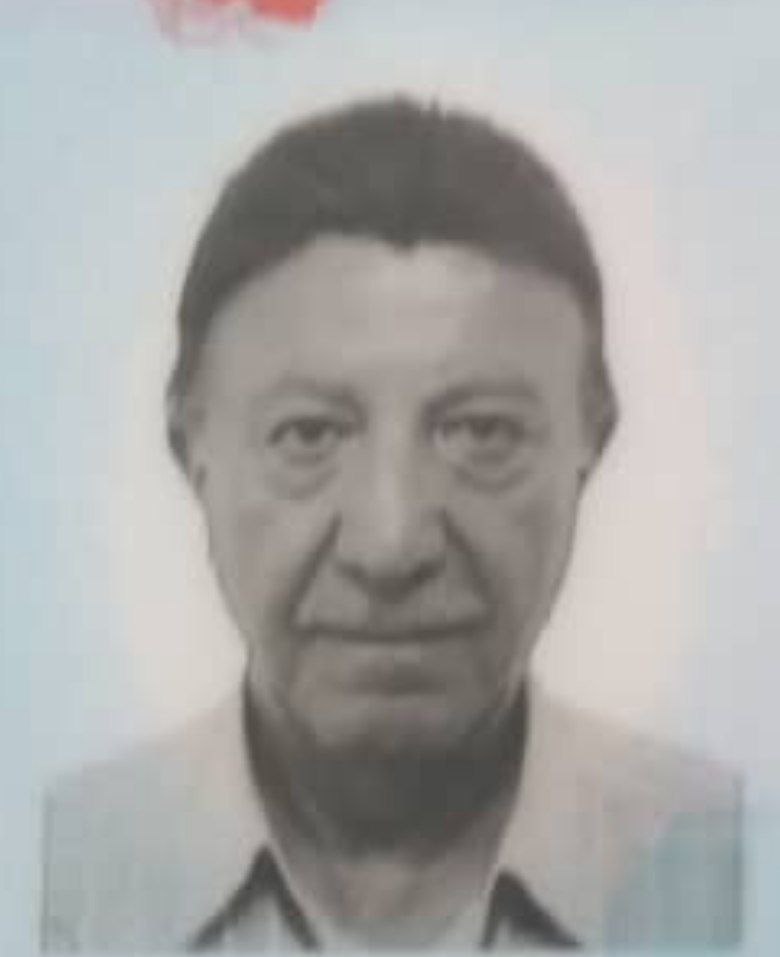Structural Model of Predicting of Tendency to Self-Harm Behaviors in Adolescents Based on the Early Maladaptive Schemas Mediated by Self-Compassion
Keywords:
Tendency to Self-Harm Behaviors, Early Maladaptive Schemas, Self-Compassion, AdolescentsAbstract
Background and Objective: Nowadays, the tendency to self-harm behaviors in adolescents has increased, and it seems that early maladaptive schemas and self-compassion play a role in it. Consequently, this research was conducted with the aim of explain the structural model of predicting the tendency to self-harm behaviors in adolescents based on the early maladaptive schemas mediated by self-compassion.
Methods and Materials: This research in terms of purpose was applied and in terms of implementation method was descriptive from type of correlation. The research population was all male and female students of the first high school of Qom city in the 2022-2023 academic years. The sample of the present research was 391 students who were selected by multi-stage cluster random sampling method. The research instruments were included the self-harm behaviors inventory (Sanson et al., 1998), early maladaptive schemas questionnaire (Young, 1999), and short form of the self-compassion scale (Raes et al., 2011). The data of this research were analyzed by structural equation modeling method in AMOS and SPSS version 25 software.
Findings: The findings of this study showed that the structural model of predicting the tendency to self-harm behaviors in adolescents based on the early maladaptive schemas mediated by self-compassion had a good fit. Also, the direct effect of early maladaptive schemas on self-compassion, the direct effect of early maladaptive schemas on tendency to self-harm behaviors, and the direct effect of self-compassion on tendency to self-harm behaviors in adolescents were significant (P<0.001). In addition, the indirect effect of early maladaptive schemas mediated by self-compassion on tendency to self-harm behaviors in them was significant (P<0.001).
Conclusion: According to the results of this study, to reduce the tendency to self-harm behaviors in adolescents can be used the educational workshops to reduce their early maladaptive schemas and increase their self-compassion.
Downloads
References
Aksu, G. G., Kayar, O., Tufan, A. E., Kutuk, M. O., Sucu, D. H., Tasdelen, B., & et al. (2022). Early maladaptive schemas differing according to sex may contribute to migraine among the youth. Brain and Development, 44(7), 427-437. https://doi.org/10.1016/j.braindev.2022.04.001
Albal, E., & Buzlu, S. (2021). The effect of maladaptive schemas and psychological flexibility approaches on the addiction severity of drug addicts. Archives of Psychiatric Nursing, 35(6), 617-624. https://doi.org/10.1016/j.apnu.2021.09.001
Ameri, N. (2023). Structural relations of early maladaptive schemas to craving in substance-dependent individuals under methadone maintenance treatment: The mediating role of self-compassion. Scientific Quarterly of Research on Addiction, 16(66), 47-70. http://dx.doi.org/10.52547/etiadpajohi.16.66.47
Asghari, A., & Aghili, S. M. (2022). The mediating role of self-compassion in the relationship between eating disorders and self-harming behaviors in female students. Psychological Models and Methods, 13(47), 117-128. https://doi.org/10.30495/jpmm.2022.29177.3517
Azizi, M., & Zarei, I. (2023). The effectiveness of dialectical behavioral therapy on self-harmful and distress tolerance in adolescents with a history of self-harmful behaviors. Psychological Achievements, 30(1), 145-162. https://doi.org/10.22055/psy.2022.38177.2726
Carels, R. A., Miller, J. C., Shonrock, A. T., Byrd, R., & Haley, E. (2021). Exploring the addition of self-compassion skills training to a behavioral weight loss program delivered using video conferencing software. Journal of Contextual Behavioral Science, 21, 196-202. https://doi.org/10.1016/j.jcbs.2021.07.005
Dai, X., Lu, S., Sullivan, A. A., & Hu, H. (2024). “All you need is compassion?” a latent profile analysis of neglect and self-compassion on child mental health. Journal of Affective Disorders, 362, 799-807. https://doi.org/10.1016/j.jad.2024.07.096
Dostal, A. L., & Pilkington, P. D. (2023). Early maladaptive schemas and obsessive-compulsive disorder: A systematic review and meta-analysis. Journal of Affective Disorders, 336, 42-51. https://doi.org/10.1016/j.jad.2023.05.053
Goldman-Mellor, S., Cruz, S. S., Jensen, J., & Hall, C. (2023). Child and adolescent suicidal and self-harm behavior. Encyclopedia of Child and Adolescent Health, 2, 516-530. https://doi.org/10.1016/B978-0-12-818872-9.00182-5
Hammad, S. S., Alzhrani, M. D., & Almulla, H. A. (2023). Adolescents’ perceived stress of COVID-19 and self-compassion in Saudi Arabia: A cross-sectional study. International Journal of Nursing Sciences, 10(2), 215-220. https://doi.org/10.1016/j.ijnss.2023.03.008
Jahan J. (2022). Prediction of behavioral activation system based on psychological distress and impulsivity of juvenile delinquents. Journal of Psychological Dynamics in Mood Disorders, 1(2) 30-38. https://maherpub.com/pdmd/article/view/60
Jashnani, Z., Ghamari, M., Kashani Vahid, L. (2024). Presenting a model of the tendency to self-harming behaviors of teenagers on cyberspace addiction with the mediation of cognitive emotion regulation. Psychological Dynamics in Mood Disorders, 2(4), 127-135. https://doi.org/10.22034/pdmd.2024.444922.1057
Keshvari, F., Karbalaee Mohammad Meigouni, A., Rezabakhsh, H., & Pashang, S. (2021). Predicting adolescent girls' anxiety by early maladaptive schemas of their mothers with the mediation of their self-differentiation and early maladaptive schemas. Journal of Applied Psychological Research, 11(4), 93-112. https://doi.org/10.22059/japr.2021.305503.643564
Khodapana, F., & Tamannaeifar, M.R. (2022). The mediating role of happiness and academic self-efficacy in the relationship between self-compassion and academic well-being in student. Journal of Psychological Science, 21(118), 2067-2089. http://dx.doi.org/10.52547/JPS.21.118.2067
Lu, J., Ye, Y., Lou, J., Zhu, H., & Zhou, X. (2024). Associations between unintentional injuries and deliberate self-harm behaviors of children and adolescents: A school-based cross-sectional survey. General Hospital Psychiatry, 86, 67-74. https://doi.org/10.1016/j.genhosppsych.2023.12.003
Marten, F., Keuppens, L., Baeyens, D., Boyer, B. E., Danckerts, M., Cortese, S., & et al. (2025). Co-occurring mental health problems in adolescents with ADHD and sleep problems. Sleep Medicine, 126, 107-113. https://doi.org/10.1016/j.sleep.2024.12.008
Mohamadi, A., Dabaghi, P., Ahmadi-tahour-soltani, M. (2019). The effectiveness of dialectical behavioral therapy on the reduction of self- injurious behaviors among soldiers with a history of self-injury. EBNESINA, 21(4), 25-33. http://dx.doi.org/10.22034/21.4.25
Moron, M., Niedbala, D., Mendrok, M., & Pach, J. (2024). How complex are the associations between early maladaptive schemas and obsessive-compulsive symptoms? Commentary on Dostal and Pilkington (2023) meta-analysis. Journal of Affective Disorders, 360, 1-4. https://doi.org/10.1016/j.jad.2024.05.137
Nguyen, T. P., Lerch, S., Maggetti, A., Reichl, C., Tarokh, L., & Kaess, M. (2023). The relationship between sleep disturbance and self-harming behaviours in high-risk clinical adolescents. Journal of Psychiatric Research, 158, 81-87. https://doi.org/10.1016/j.jpsychires.2022.12.034
Nikol, A., Kavanagh, P. S., Murray, K., & Mak, A. S. (2022). Emotion regulation as a mediator between early maladaptive schemas and non-suicidal self-injury in youth. Journal of Behavioral and Cognitive Therapy, 32(3), 161-170. https://doi.org/10.1016/j.jbct.2022.05.001
Ogeil, R. P., McGrath, M., Grigg, J., Peart, A., Meddings, J. I., Greenwood, C. J., & et al. (2025). Diverging trends in alcohol-related harms: The role of comorbid mental health, suicide and self-harm behaviors in ambulance attendances for alcohol intoxication during the COVID-19 pandemic in Victoria, Australia. Journal of Affective Disorders, 371, 170-176. https://doi.org/10.1016/j.jad.2024.11.012
Pyszkowska, A., & Stojek, M. M. (2022). Early maladaptive schemas and self-stigma in people with physical disabilities: The role of self-compassion and psychological flexibility. International Journal of Environmental Research and Public Health, 19(17), 10854. https://doi.org/10.3390/ijerph191710854
Raes, F., Pommier, E., Neff, K. D., & Van Gucht, D. (2011). Construction and factorial validation of a short form of the self-compassion scale. Clinical Psychology & Psychotherapy, 18(3), 250-255. https://doi.org/10.1002/cpp.702
Reinhard, M. A., Popov, N., Rek, S. V., Nenov-Matt, T., Barton, B. B., Jobst, A., & et al. (2022). Loneliness is associated with maladaptive schema modes in patients with persistent depressive disorder. Journal of Psychiatric Research, 154, 56-60. https://doi.org/10.1016/j.jpsychires.2022.07.057
Saarijarvi, P., Salmivalli, C., Helmi, S., & Karukivi, M. (2023). Early maladaptive schemas are associated with self-injury thoughts and behavior in adolescents. BMC Psychiatry, 23(632), 1-16. https://doi.org/10.1186/s12888-023-05127-7
Safarpour, A., Ghamari, M., & Hosseinian, S. (2021). The mediating role of the self-compassion in the relationship between identity styles and adolescents self-harming behaviors. Rooyesh-e-Ravanshenasi Journal, 10(8), 197-208. http://dorl.net/dor/20.1001.1.2383353.1400.10.8.4.8
Sansone, R. A., Wiederman, M. W., & Sansone, L. A. (1998). The self-harm inventory (SHI): Development of a scale for identifying self-destructive behaviors and borderline personality disorder. Journal of Clinical Psychology, 54(7), 973-983. https://doi.org/10.1002/(sici)1097-4679(199811)54:7%3C973::aid-jclp11%3E3.0.co;2-h
Sedighi Arfaee, F., Eskandari, N., & Shirvani, K. (2024). The mediating role of self-compassion in the relationship between early maladaptive schemas with quality of life and psychological distress. Rooyesh-e-ravanshenasi Journal, 13(2), 25-36. https://frooyesh.ir/article-1-5064-en.html
Sourander, A., Silwal, S., Osokina, O., PhLic, S. H., Hodes, M., & Skokauskas, N. (2024). Suicidality and self-harm behavior of adolescents during the early phase of the war in Ukraine. Journal of the American Academy of Child & Adolescent Psychiatry, 63(12), 1204-1214. https://doi.org/10.1016/j.jaac.2024.03.015
Suh, H., & Jeong, J. (2021). Association of self-compassion with suicidal thoughts and behaviors and non-suicidal self-injury: A meta-analysis. Frontiers in Psychology, 12(633482), 1-15. https://doi.org/10.3389/fpsyg.2021.633482
Syed, A., Thibodeau, P. S., Dieujuste, N., Jones, C. D., Dunbar, K. S., Mann, A., & Fainstad, T. (2024). Examining the impact of moral injury on burnout, impostor syndrome, and low self-compassion among female medical trainees: A secondary analysis. Mayo Clinic Proceedings, 99(12), 1905-1912. https://doi.org/10.1016/j.mayocp.2024.07.015
Turk, F., Kellett, S., & Waller, G. (2021). Determining the potential links of self-compassion with eating pathology and body image among women and men: A cross-sectional mediational study. Body Image, 37, 28-37. https://doi.org/10.1016/j.bodyim.2021.01.007
Whittingham, K., & Mitchell, A. E. (2023). Postnatal traumatic symptoms and shame: A cross-sectional study examining the role of birth, breastfeeding, psychological flexibility and self-compassion. Journal of Contextual Behavioral Science, 28, 248-255. https://doi.org/10.1016/j.jcbs.2023.04.004
Yavuz, E., Rodrigues, R., Sanchez, A. P., Lingford-Hughes, A., & Di Simplicio, M. (2024). Reward processing in young people with self-harm behavior. Journal of Psychiatric Research, 180, 68-78. https://doi.org/10.1016/j.jpsychires.2024.09.038
Yazdan, K., Khosravi, S., & Chinaveh, M. (2022). The mediating role of early maladaptive schemas and coping styles in the parent-child relationship and emotional regulation with self-healing behaviors. Medical Journal of Mashhad University of Medicals Sciences, 64(6), 3482-3502. https://doi.org/10.22038/mjms.2021.61424.3595
Young, J. E. (1999). Cognitive therapy for personality disorders: a schema focused approach. 3rd Ed, Sarasota FL: Professional Resource Press/Professional Resource Exchange. https://psycnet.apa.org/record/1999-02395-000



























